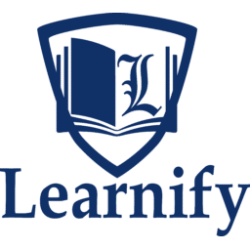Introduction:
Conflict is an inevitable part of organizational life, but how it is managed can significantly impact productivity, morale, and long-term success. Effective conflict management requires leadership, communication, and problem-solving skills to navigate disputes in a way that fosters collaboration and drives positive outcomes. This 5-day Conflict Management in Organizations Training Course is designed to equip leaders, managers, and HR professionals with the tools and strategies needed to identify, manage, and resolve conflicts within the workplace. Participants will learn how to transform conflict from a challenge into an opportunity for growth, innovation, and improved relationships.
Course Objectives:
By the end of this training, participants will be able to:
- Understand the Sources and Types of Conflict: Identify the root causes of conflict in organizations and understand different types of conflicts.
- Develop Conflict Resolution Strategies: Learn practical techniques and strategies for managing and resolving conflict effectively.
- Enhance Communication Skills: Improve communication techniques to prevent misunderstandings and facilitate resolution during conflicts.
- Build a Positive Conflict Culture: Foster a work environment where healthy conflict is encouraged as a means of growth and collaboration.
- Apply Mediation Techniques: Learn how to act as a mediator and facilitate productive discussions between conflicting parties.
- Manage Difficult Conversations: Develop the ability to manage tough conversations and address conflicts early before they escalate.
Who Should Attend?
This course is ideal for:
- Senior Executives and C-suite Leaders: CEOs, COOs, and other top-level executives who need to manage and resolve organizational conflicts.
- Managers and Team Leaders: Individuals responsible for leading teams and managing interpersonal relationships in the workplace.
- Human Resources and Employee Relations Professionals: HR professionals involved in conflict resolution, employee engagement, and organizational culture.
- Project Managers: Leaders managing cross-functional teams and projects where conflict is common.
- Consultants and Advisors: Professionals who support organizations in improving conflict resolution practices and team dynamics.
Course Outline:
Day 1: Understanding Conflict in Organizations
- Morning:
- What is Conflict? Understanding the Nature of Conflict in Organizations
- Types of Conflict: Task Conflict, Relationship Conflict, and Process Conflict
- Sources of Conflict: Communication Breakdown, Personality Differences, Resource Scarcity, Power Struggles, and Organizational Change
- The Impact of Conflict on Individuals and Organizations: Positive vs. Negative Outcomes
- Afternoon:
- The Role of Organizational Culture in Conflict: How Company Values Shape Conflict Behavior
- Identifying Conflict Triggers: Recognizing Early Signs of Conflict to Address Issues Early
- Conflict Styles and Preferences: Understanding Your Personal Approach to Conflict (Thomas-Kilmann Conflict Mode Instrument)
- Group Activity: Analyzing a Real-World Conflict and Identifying Root Causes
Day 2: Conflict Resolution Techniques and Strategies
- Morning:
- Conflict Resolution Models: Understanding Approaches (Collaborative, Competitive, Avoidant, Accommodative, Compromising)
- Steps in the Conflict Resolution Process: Identifying Issues, Understanding Perspectives, Exploring Solutions
- The Role of Active Listening: How to Listen Effectively to Understand Needs and Concerns
- Afternoon:
- Creating Win-Win Solutions: Collaborative Problem-Solving and Negotiation Techniques
- Conflict Resolution in Teams: Facilitating Discussions, Mediation, and Consensus Building
- Managing Emotions in Conflict: Keeping Calm and Professional While Navigating Tensions
- Case Study: Resolving Conflicts in a Diverse Workplace
- Group Exercise: Practicing Conflict Resolution Scenarios in Pairs
Day 3: Communication Skills for Conflict Management
- Morning:
- The Role of Communication in Conflict: How Miscommunication Escalates Disputes
- Non-Verbal Communication and Body Language: How to Use Non-Verbal Cues to De-escalate Conflict
- Framing Messages Positively: How to Deliver Difficult Messages with Sensitivity
- Afternoon:
- Using “I” Statements and Assertiveness Techniques: How to Express Concerns Without Blaming
- Managing Difficult Conversations: How to Confront Issues and Hold People Accountable
- The Role of Empathy in Conflict Resolution: Understanding Different Perspectives and Building Rapport
- Group Exercise: Role-Playing Difficult Conversations and Practicing Effective Communication
Day 4: Mediating Conflict and Facilitating Resolution
- Morning:
- The Role of a Mediator: Facilitating Conflict Resolution as an Impartial Third Party
- Mediation Techniques: How to Lead Constructive Conversations Between Conflicting Parties
- Setting Ground Rules for Mediation: Ensuring Respectful and Productive Dialogue
- Afternoon:
- The Stages of Mediation: Opening, Exploration, Negotiation, and Agreement
- Managing Impasses: How to Overcome Deadlocks and Keep the Dialogue Moving
- Best Practices for Mediators: How to Create an Environment of Trust and Safety During Mediation
- Case Study: Mediating a Workplace Dispute and Reaching a Solution
- Group Exercise: Practicing Mediation Skills in Small Groups
Day 5: Building a Conflict-Positive Culture and Long-Term Solutions
- Morning:
- Building a Culture that Embraces Constructive Conflict: How to Encourage Healthy Disagreements
- Preventing Conflict Through Clear Communication, Expectations, and Training
- Developing Conflict Management Skills Across the Organization: Training Employees at All Levels
- Afternoon:
- The Role of Leadership in Managing Conflict: How Leaders Can Model and Support Healthy Conflict
- Long-Term Strategies for Conflict Prevention: Creating Clear Policies, Promoting Open Dialogue, and Regular Feedback
- Measuring Conflict Resolution Effectiveness: Key Performance Indicators (KPIs) for Conflict Management
- Group Project: Developing a Conflict Management Plan for Your Organization
- Wrap-Up and Q&A: Key Takeaways and Action Steps for Implementing Conflict Management Practices
This Conflict Management in Organizations course provides leaders and managers with the knowledge, skills, and practical tools needed to manage and resolve conflicts effectively. By improving communication, fostering a positive conflict culture, and learning mediation techniques, participants will be equipped to transform conflicts into opportunities for growth, collaboration, and improved team performance. This training ensures that leaders are prepared to lead teams in a way that fosters cooperation and addresses challenges constructively.


